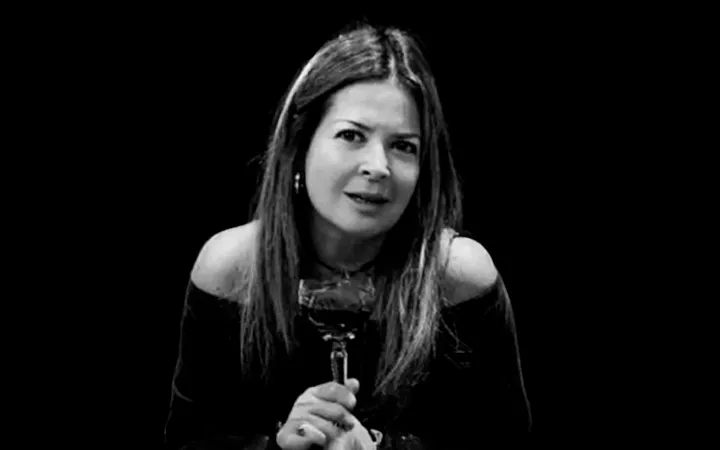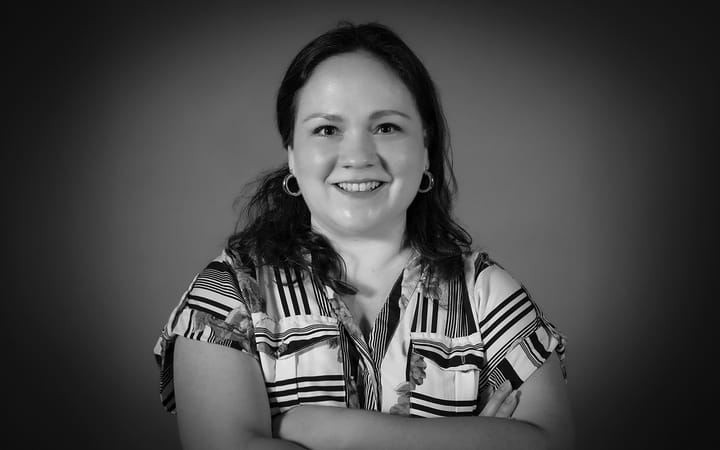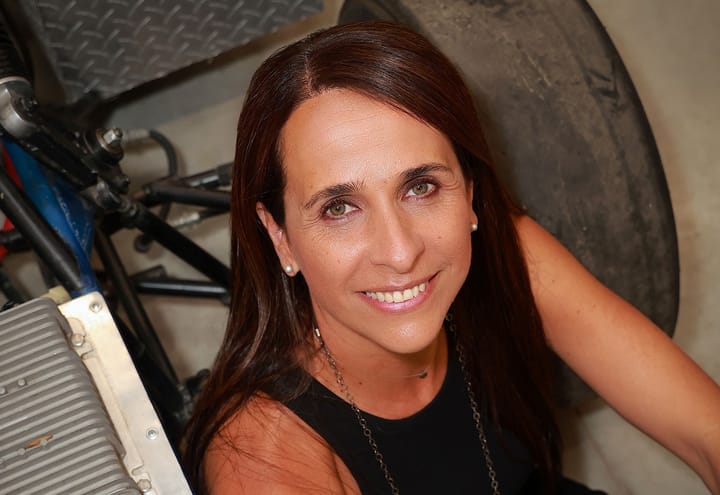Por Bárbara Anderson
Hablen con sus hijos sobre niños como Lucca, como mi hijo.
Hoy empiezan las clases en todo el país y este es un momento emocionante para la mayoría pero angustioso para una mamá como yo de un pre adolescente con parálisis cerebral.
Lucca es un privilegiado, aunque me pese. Es uno de los pocos que puede ejercer su derecho a estudiar (¿sabían que solo 1 de cada 4 niños con discapacidad están escolarizados).
Hablen con sus hijos sobre niños como Lucca.
Porque a pesar de los cambios en leyes (y hasta en la Constitución) nada ha cambiado en la inclusión de alumnos con alguna condición de vida. De hecho en este sexenio ha caído el número de niños, niñas y adolescentes que tienen la oportunidad de pisar un salón de clases.
Hablen con sus hijos sobre niños como Lucca.
Que se pregunten desde la más genuina curiosidad y sin sesgos por qué no hay en su aula o en su escuela niños con discapacidad. O qué significa la discapacidad. Porque los maestros, los directivos y las autoridades no lo dicen, no lo explican… solo lo evaden.
Hablen con sus hijos sobre niños como Lucca.
Hablen sobre diferentes maneras de moverse, de estudiar, de comunicarse, de aprender, de disfrutar, de jugar, de hacer amigos.
Hablen con sus hijos sobre niños como Lucca.
Enseñen lo que no aprenden en sus escuelas: que la discapacidad no es una mala palabra, ni autismo, ni síndrome de Down, ni parálisis cerebral, ni sordera, ni implante, ni silla de ruedas.
Hablen con sus hijos sobre niños como Lucca.
Confío en ellos, en los mexicanos y mexicanas que no han sido maleados por ‘el así es’, por los ‘en mi escuela no hay cupo’, ‘un chico distinto puede empeorar a sus compañeros’ o ‘no somos el colegio que él se merece’.
Una niña de apenas 11 años pidió una cita con el director de la escuela donde va Lucca para pedir que no la cambien de salón, “que quiero ser su compañera hasta la Preparatoria”. Tuvo que explicar que ella no solo entiende cómo mi hijo usa su comunicador sino que se divierte con él, es su mejor compañero de trabajos en grupo y hacen un dúo inseparable. A mi no me hicieron caso en ese pedido (que no los separen), pero ella supo defender mejor que yo con sus argumentos que ella es empatía e inclusiva.
Hoy hay cientos, miles de mexicanos y mexicanos con discapacidad entre 5 y 17 años que no saldrán de su casa, que no han comprado ni colores ni estrenarán una playera escolar. Son 828,890 en total.
Nadie los ve, nadie los extraña en la escuela, nadie se pelea por ellos para ser vecinos de pupitre porque no les han hablado de los niños con discapacidad.
Hablen con sus hijos sobre niños como Lucca.
Porque los maestros no saben, las escuelas se protegen, los directivos usan métodos ‘políticamente justificables’ para dejar a 25% de la población con discapacidad en analfabetismo (sin que eso les quite ni una noche de sueño).
Hablen con sus hijos sobre niños como Lucca, de niños como el hijo de Karem Robert, cofundadora y activa impulsora de ‘Familias extraordinarias’, una organización civil de cientos de padres de hijos con discapacidad. Ella ha recibido decenas de historias de padres que ha escuchado antes de hoy que a su hijo ‘no lo reciben’, ‘a sus hermanos si, al distinto no’, ‘es necesario pagar colegiatura extra’, ‘no tenemos cupo’, ‘la asociación de padres no quiere que compartan el mismo salón’ ‘no queremos defraudarlos porque no nos sentimos capacitados’.
“En el sector privado persisten en muchos colegios el rechazo a estudiantes con discapacidad aduciendo el no estar preparados tanto en infraestructura como en capacitación; así como la exigencia a pagar cuotas especiales por atención a la educación especial, la contratación de monitores/asistentes educativos (las llamadas sombras) sin tener una justificación a las necesidades reales de cada estudiante y a la firma en algunos casos de lineamientos o acuerdos para asegurar su permanencia en la escuela”, me cuenta Karem. No hay donde quejarse en la SEP, nadie escucha a los padres y muchas veces no quieren hacer una denuncia por discriminación temiendo represalias.
Hablen con sus hijos sobre niños como Lucca.
Que sepan que 17% de todos los mexicanos vive con alguna discapacidad. Que eso no es malo, sino que es injusto no tenerlos cerca y disfrutando de la educación.
Hablen con sus hijos sobre niños como Lucca.
Enséñenles a ser atentos, a saludar, a preguntarles qué tienen o cómo se sienten, a animarse a conocerlos, a animarse a ayudarlos con sus tareas o compartir sus miedos y alegrías.
Solo 4 de cada 10 escuelas afirma tener la infraestructura y los materiales necesarios para atender a los niños con discapacidad. Pero se lo dicen a la SEP, no a los padres, nunca nos piden nuestro apoyo sobre ‘cómo hacemos que sí’ nuestros hijos sean incluídos y educados.
Hablen con sus hijos sobre niños como Lucca.
Hablen de la importancia de valorar las diferencias.
Hablen de lo hermoso de ser empático (y que se trata de un camino de doble vía, no de asistencia)
Hablen de los derechos de todos.
Hablen desde la ternura y la curiosidad, nunca desde la distancia y el ‘no te metas’.
Hablen con sus hijos sobre niños como Lucca.
Son ellos en quienes más confío para que tengamos alguna vez un país donde ser ‘no estándar’ no sea un castigo.
PLUS:
Hay muchas injusticias, hay muchos alumnos y alumnas con discapacidad que hoy no entrarán a un colegio.
Necesitamos ser activos y defender los derechos más básicos.
Invito a quienes vivan una situación de este tipo, de discriminación, que denuncien estos casos.
El mejor abogado y experto en estos temas es Agustín de Pavia (whastapp: 56 5222 5479).
Aquí les dejo sus recomendaciones previas, lo que hay que hacer para que la denuncia pueda ser ratificada y haya éxito.
Ante una negativa escolar a recibir a un alumno/a con discapacidad es necesario:
● Documentar todo el proceso de pedido y negativa vía correos de e-mail, mensajes WhatsApp.
● Graba las reuniones con autoridades y maestros donde digan porqué no aceptan a una persona con discapacidad en la institución.
● Ofrecer alternativas para que si puedan recibir al alumno y documentar las respuestas.
● Narrar hechos, juntar pruebas y de ser posible testigos.
● Guarden todo este material para sumarlo a una demanda ante las autoridades.

Las opiniones expresadas son responsabilidad de sus autoras y son absolutamente independientes a la postura y línea editorial de Opinión 51.






Comments ()